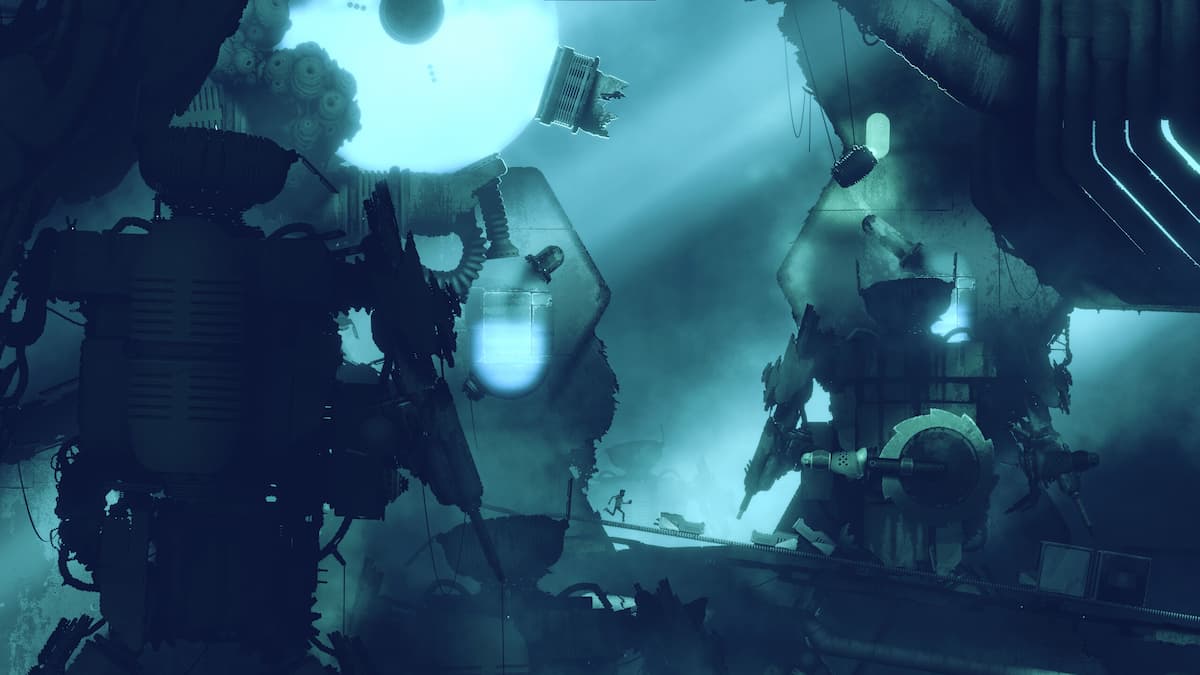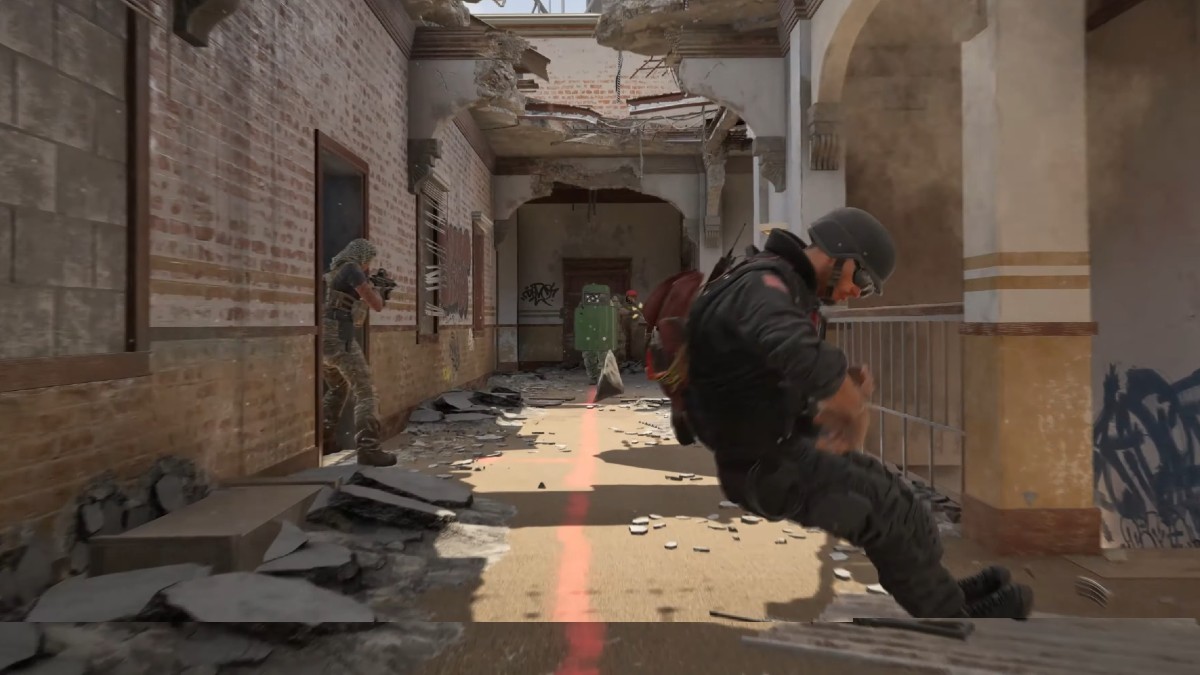Not to toot my own horn a bit, but I have singlehandedly boosted Prima Games’ SaGa coverage in just the past year by several hundred percent. What was the number previously? Don’t worry about it. While I can’t tell if harping on about a relatively obscure Square Enix JRPG series is beneficial to my brand or career, I do know it is absolutely beneficial to my job satisfaction. Therefore, my SaGa saga must continue. Earlier in the year I was offered an email Q & A with the Square Enix SaGa team leads, although I didn’t fully know beforehand exactly who I was sending questions to. This time was a bit different.
Square Enix SaGa Interview
Around E3 last month, I had the chance to actually hop on a Zoom call with the same folks I got email answers from. I got to sit down as close as face to face as is feasible (for so many reasons) with Akitoshi Kawazu, Masanori Ichikawa and Hiroyuki Miura. All three of these men have been doing the JRPG lord’s work with SaGa, especially getting these games localized for current platforms like the Switch and PS4. Kawazu especially is personally responsible for hundreds of hours of my live disappearing into a videogame void, since he’s been at Square since Final Fantasy II.
The interview was open season, but since I had really just interviewed these folks about the same games, I decided to just riff and see what happened. Luckily, I have the editorial authority to destroy any live speech patterns from the record, so I made the whole room sound as smart and inhumanly eloquent as possible. You’ll never know what it was like to listen to (you can see what it looked like later though), and frankly I wish I didn’t. I could be a world record holder for awkward pausing and very southern “Ums.” But hey, this turned out well! From talking about the past 20 years of JRPG temperament in North America to everyone’s favorite SaGa moment, we covered a lot of ground. Here’s what’s going on with SaGa in 2021.
Lucas White, Prima Games: Just to start off, may I have everyone explain their jobs a little, like on a day to day basis?
Akitoshi Kawazu, SaGa series director: Hello, I am Akitoshi Kawazu, the SaGa general director. In general on a day to day basis, I do game design and game direction.
Masanori Ichikawa, SaGa series producer: I am Masunori Ichikawa, I am the producer of the SaGa series. I’m working on various events and the general outlook for the series centered around Romancing SaGa Re:Universe. So, currently working on the series as a whole.
Hiroyuki Miura, SaGa Frontier Remastered producer: I’m Hiroyuki Miura, and most recently I was the producer of SaGa Frontier Remastered. On an everyday basis I do work as a producer on various games, but especially the SaGa series. I’ve been working on remastered titles, remake titles… bringing those past titles back to life.
Related: Interview: Talkin’ SaGa Shop with Square Enix SaGa leaders Akitoshi Kawazu, Hiroyuki Miura and Masanori Ichikawa
Just a few months ago, I briefly spoke with you all via an email Q&A. That was before SaGa Frontier Remastered and just after the Collection of SaGa: Final Fantasy Legend release. So what’s the state of SaGa since then? How do you feel about the reception these various projects have received?
Miura: In terms of sales, [SaGa] has been doing very well, especially on consoles. But we also noticed that recently a lot of the Steam sales have been increasing, so we are realizing that a lot of players are playing [SaGa] on [PC] as well. And as for user reception, we’ve been getting feedback that [Frontier Remastered] is a good version of the game itself. It seems to be striking a balance with the sentiment of the original, so we’ve been able to preserve that while also providing players with additional elements, such as the Fuse scenario. That new content has been met with praise and positive sentiment as well.
Kawazu: It’s great to get all this positive feedback for SaGa Frontier Remastered. So with that we realize there is higher demand for remastered versions of other titles and completely new titles for SaGa as well. So we’re very happy to get that sort of feedback.

Speaking of growing interest, it feels like in North America we’ve been seeing SaGa releases much more frequently compared to a few years ago. Was the chance to bring the series over here after a long break a challenge, or just some exciting good timing, or what?
Kawazu: Going back about 20 years ago, just when the 2000s started, there was an era where at least in North America a lot of those old-style games weren’t received well. So as a whole we were struggling a bit. But as of the past five or six years, whether it’s an old-style game or something completely new, it seems like players are more receptive to games from various [genres]. So in that sense we feel there is more opportunity and more chances for us currently, compared to before.
Related: Why You Should Play Collection of SaGa
Ichikawa: I believe it was back in 2016 that we released the remastered version of Romancing SaGa 2. Of course we knew that was a popular title in Japan, so it would be received well in Japan. But since the original wasn’t released overseas, we didn’t even know if there were fans or a following for that title. But I discussed it with Kawazu-san saying, you know, “let’s give it a try.” So we released that game, and following that we were able to release Romancing SaGa 3 and SaGa Scarlet Grace: Ambitions.
It was kind of like taking one step at a time. Like I said before, we weren’t sure if there were fans of these games. But after taking it one step at a time with these games we were able to receive better feedback and reception than we had hoped for. So that ultimately led to us releasing other titles such as SaGa Frontier Remastered and Collection of SaGa in English. So that’s kind of how we progressed: one step at a time.

Do you all have any theories or ideas as to what caused such a huge change in taste in North American players? I agree there was a period back in the 2000s where people were reluctant to play JRPG games, and that has really changed recently. Where do you think that came from?
Kawazu: When we look at games out there currently, we see various indie games and mobile games that are aimed at casual players. So we have a wide breadth of games that don’t necessarily have to be high definition to become a success. We don’t need that to come to the forefront for games to be appealing. So it seems because of that, players have been more receptive of various kinds of games.
That helps us from a business or developer perspective; we can have games that have, let’s say, low resolution or high resolution. It doesn’t really matter. And because of the online gaming environment, that’s allowed us to create even more kinds of games. So games of any kind, from old-style games to the latest cutting edge, there is a chance for any kind of game to be a success. It feels like a win-win situation for both developers and the gaming community.

Also, in my opinion of course, I think the resurgence of games like SaGa in North America can also be attributed to the proliferation of things like internet communities, guides and wikis helping people share information. SaGa, over here, has a reputation of being hard to figure out. But the more dedicated players explaining the systems in great detail, I think, has contributed to SaGa and similar games being easier to get into. At the same time, I find myself wondering if you feel like new players using guides for help is an overall positive or does it interfere with what the series’ intent may be?
Related: Getting Started in SaGa Frontier Remastered: Tips ‘n Tricks
Kawazu: First and foremost, of course it’s a very good thing that we do have a user community and that they are able to share information and have those guide pages online. That said, when we created the games we didn’t have players knowing the outcome of the game before they played. So it would be preferred if people didn’t look at those guide pages [before playing].
That being said, how players play the game is all dependent on what their preference is. We don’t have the right to dictate that, so in that sense it’s up to the players themselves if they want to look up information beforehand.

Personally, the moment I realized I was invested in or a fan of this series was in Romancing Saga 2. The small mermaid storyline really caught me off-guard. So individually, whether from a work or playing perspective or anything really, what are your favorite games in the series or even just specific moments that stand out?
Ichikawa: Currently my favorite game in the series is Scarlet Grace: Ambitions. Especially the Balmaint storyline. He and another (non-playable) protagonist Arthur. What happens is these characters are trying to solve mysteries and issues but it kind of gets more ominous as the story goes along. It becomes very unclear whether things are reality or not, which I feel is something that we can only experience in games. So that’s why I really enjoy this scenario.
Related: SaGa Frontier Remastered Review | Anthology of Adventure
Miura: My favorite entry in the series is [Final Fantasy Legend II/SaGa 2]. The reason for this is because there are many lines in the game that left a big impression or impact on me. I don’t feel there are many titles that have left this much of an impression on me which is why this one really stands out. Especially one line in the Venus battle where someone says, “the current you is the most hideous that you’ve looked!” [laughs] So there’s a very short but very impactful line that I remember. That’s why SaGa 2 is my favorite of the bunch.

Note: the exchange being referred to here was provided by Square Enix PR after the interview, to show how it was localized:
Venus: Nobody can disobey me here in my world!!
Player: Your city of beauty? HA! HA! You’re the most graceless one!
Kawazu: There are a lot of titles I love of course, but one that stands out is the Asellus scenario from SaGa Frontier, when she goes back to [Chateau Aiguille]. She says, “I am Asellus! Open the gate!” and then the gates [ahead of the final battle] open up. That is one scene that is really left in my mind.

A lot of work went into this interview! I’d like to thank these three gentlemen from Square Enix for taking the time to speak with me and undoubtedly several others during a busy industry time. A big thanks for the PR pros who helped organize and invited me! And of course, a big shout out to Mr. Taku Hatori for helping us out in real time with the language barrier. I would also like to briefly thank my brain for its wacky hyperfixations, which don’t always pay off but did here big time. If you liked what you read here, feel free to hit me up on the Bad Bird App, or give a shout to Prima Games’ own Facebook or Twitter feeds. Also, for my sake, play a dang SaGa game if you haven’t yet.





Published: Jul 16, 2021 9:05 PM UTC